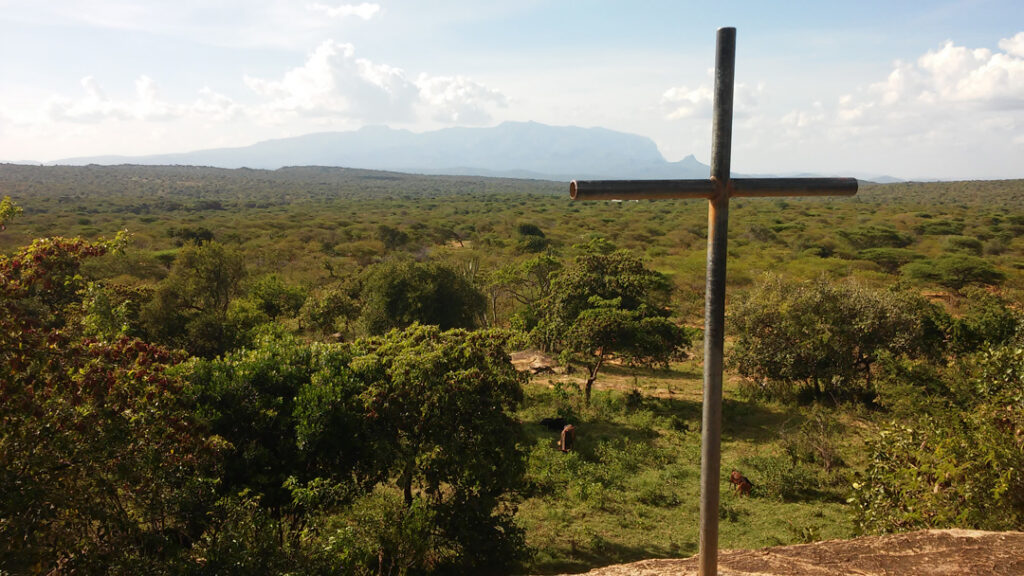
Let us pray to the Lord for the prophets of the Gospel of our time who, scattered throughout the world, make visible his Kingdom of justice and peace: may their testimony challenge our lives and renew our missionary commitment. Lord, hear us.
Our Easter celebration was amazing. The celebration was held in Kitelakapel international community. We were joined by other CLM members and candidates from Nairobi
On Holy Thursday
The day was started by welcoming our CLM members and candidates from Nairobi to Kitelakapel community, it was a moment of community building amongst us by sharing responsibilities
In the afternoon we had the privilege of showing our appreciation and gratitude by celebrating our assessor Fr Maciej on priest day
During the afternoon in Holy Triduum, we had moments of sharing our testimonies and vocations with the local community
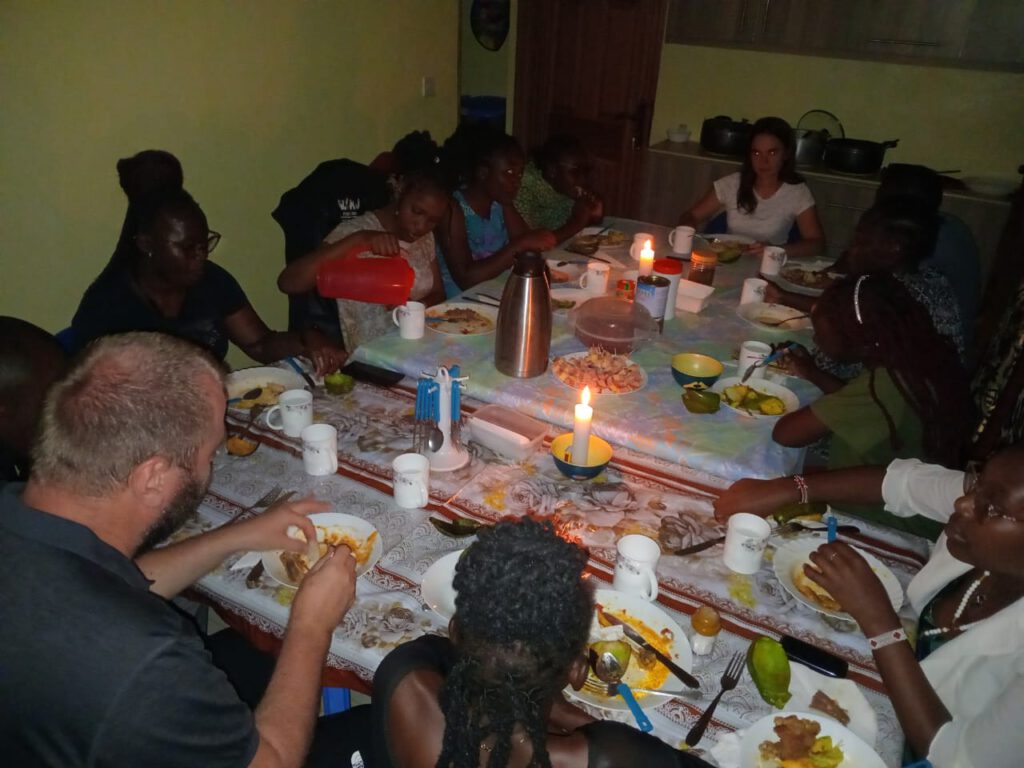
On Good Friday
We joined the local community in prayer and singing during the way of the cross.
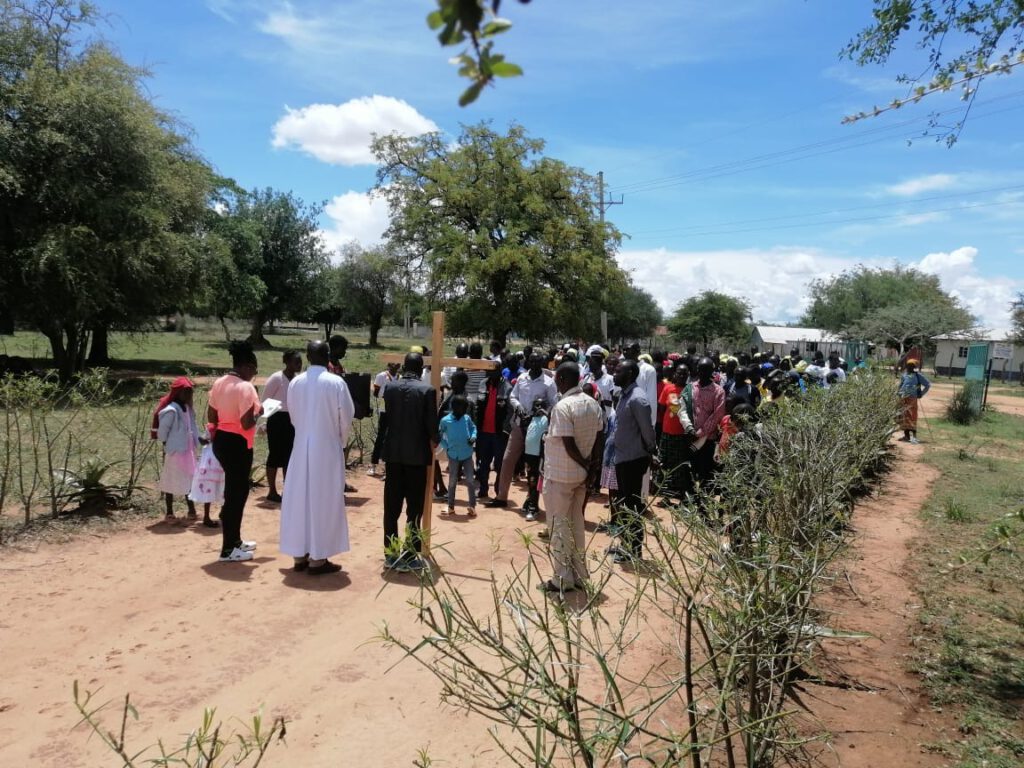
After which we continued building and engaging ourselves in our community by sharing of chores, eating together and praying together
On Holy Saturday
We had Bible catechesis with Fr Maciej, a short retreat where we reflected on the Word of God and prayer and later, we shared our individual reflections.
In the afternoon we joined the local community in celebrating Holy Saturday where we participated in the liturgy
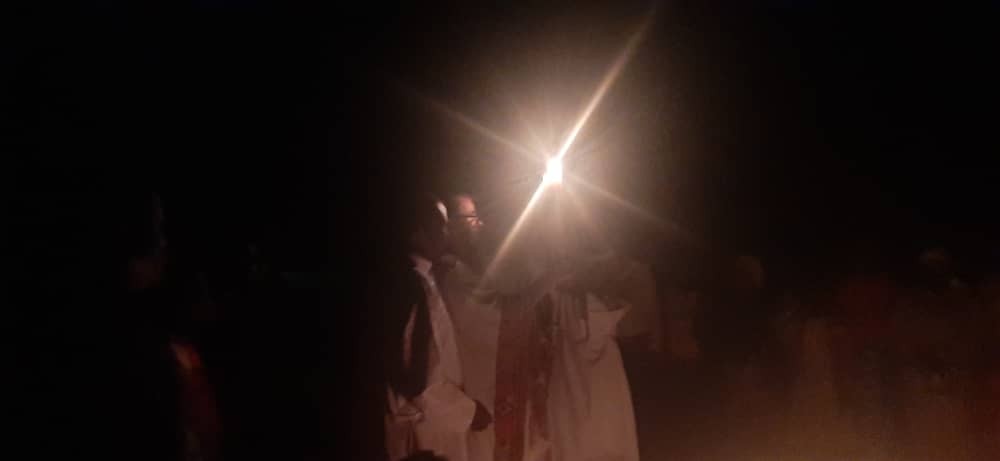
We also took that moment to welcome two of our new members to the group, Gabriel and Anastasia
Resurrection Sunday
It was a day filled with joy and hope for our Lord Jesus Christ had resurrected from the dead. We joined the local community during mass where we participated in the liturgy and Sunday school with the children.
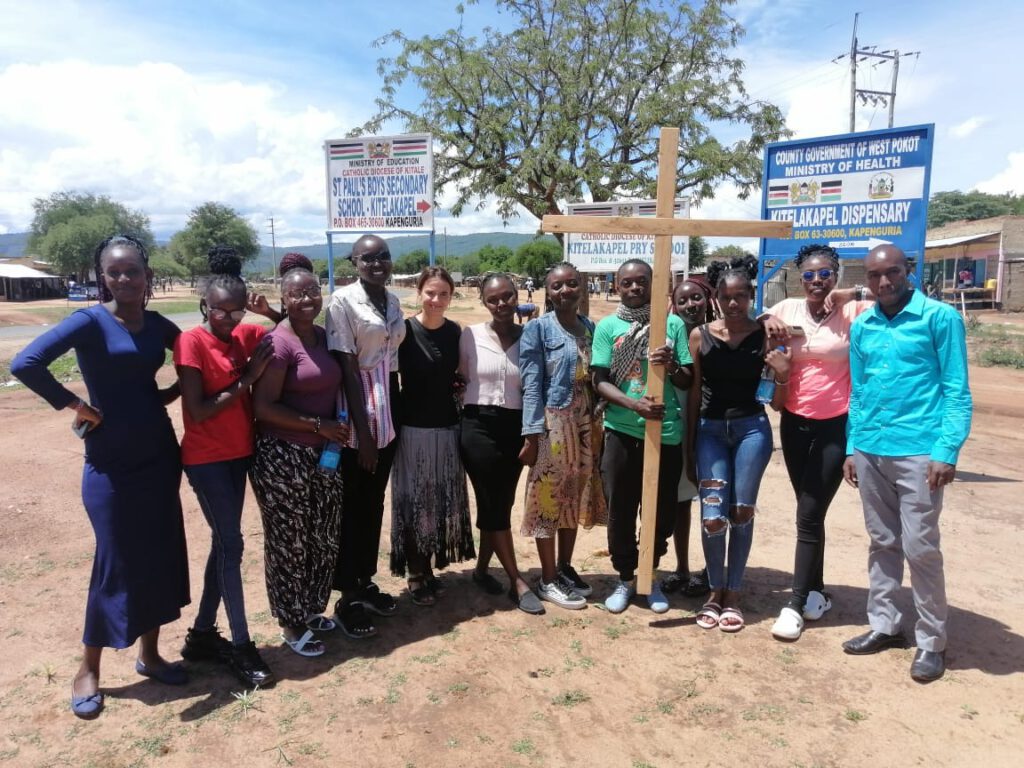
On Monday our dearest pope Francis passed away. We pray for his eternal rest and for all our Catholic church. Let’s be united in prayer.
Belinda Awino, CLM Kenya
An experience with hope in common of the CLM that participated in the Holy Week Mission Camp in the Parish of St. Michael the Archangel, to discover how the people of the neighborhoods where we participated would receive us since it was the first time that they would have CLM in the neighborhoods of the parish. In our thoughts it was something complicated but the reality changed our vision since being there the experience was bearable, fruitful and of much teaching for all. We shared our faith from our experience even with the difficulty and limitation of not knowing the language or customs; they opened their hearts to us, with their attention and participation; they also expressed their gratitude to each one of us at different times.
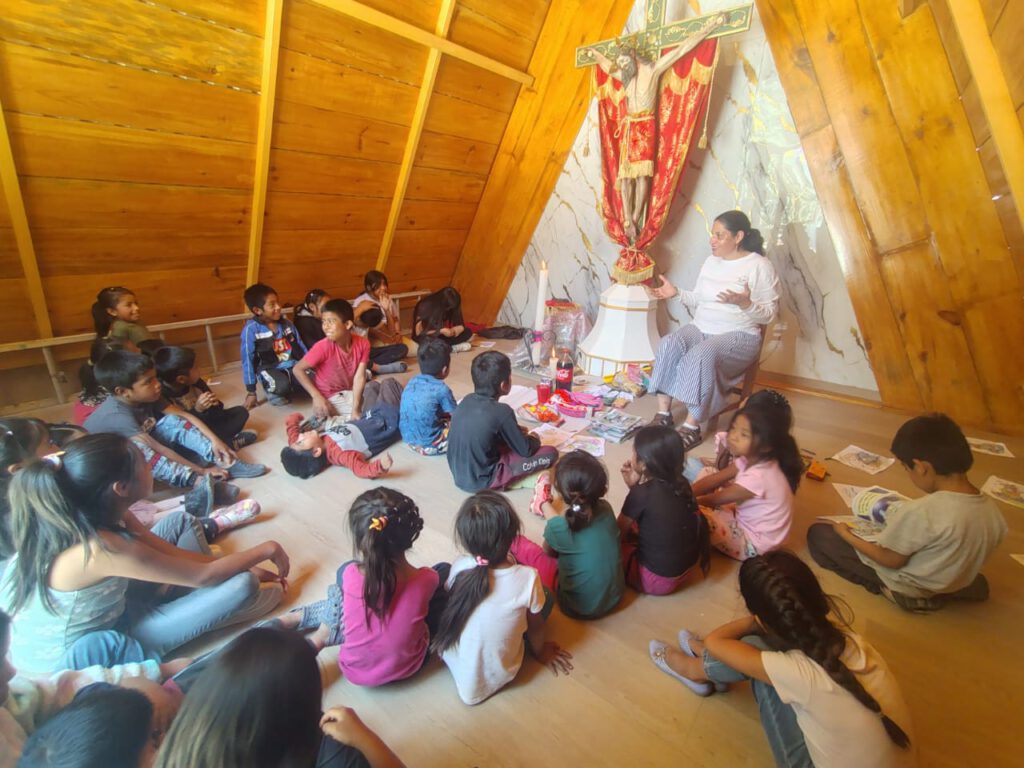
The obstacles we encountered were diverse, the main one was the language, some of us got sick, the material we carried, not knowing the customs and culture. Fortunately there is something that unites us, the Faith we have in Jesus Christ lived in this Holy Week 2025 Jubilee year in which we were able to share with people in a friendly relationship, topics in the colonies, processions, prayer and Eucharist always with something characteristic of each day of the Holy Week.
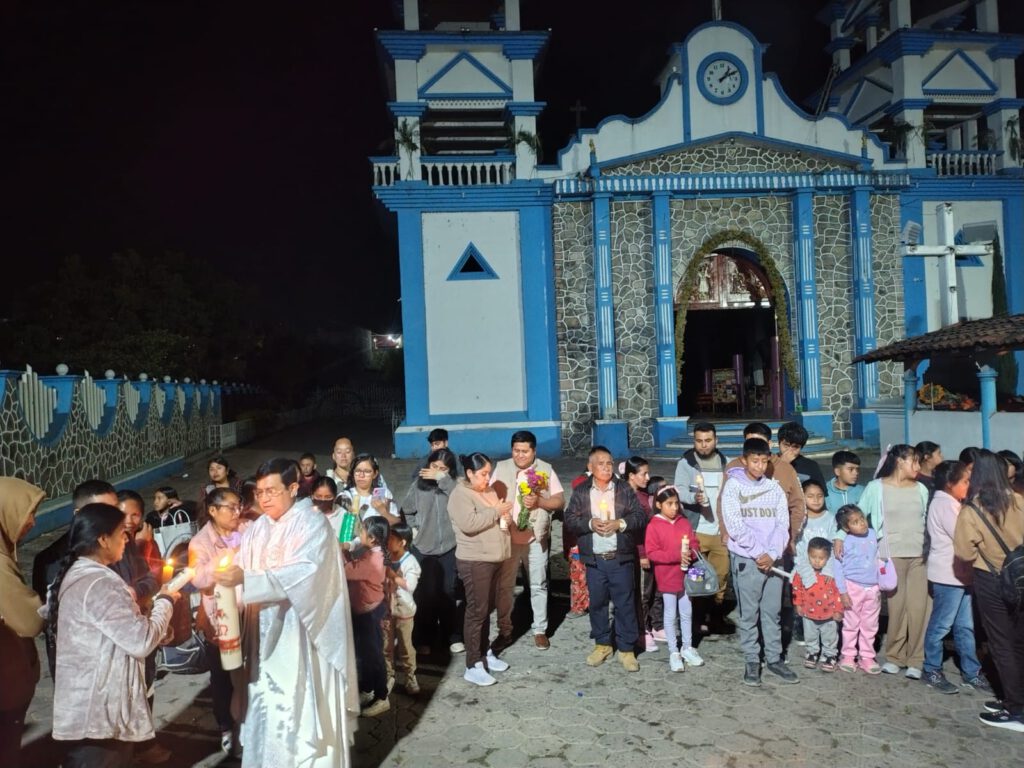
That is why as CLM we believe that we must take into account: to know how to listen, to know without judging, to let ourselves be taught by the people who receive us, to enrich our values, to highlight the richness that we discover, to be open to the changes that may arise, to work obedience and respect for the leaders we meet, to forget about what may distract you and to live the MISSION, above all without leaving behind the Comboni Ideal, evangelizing the poorest and most abandoned, loving our Cross without being discouraged by the circumstances you may encounter, problems or adversities, always remembering Whom we serve and for Whom we are here, doing everything with Love to give Glory to our Lord Jesus Christ.
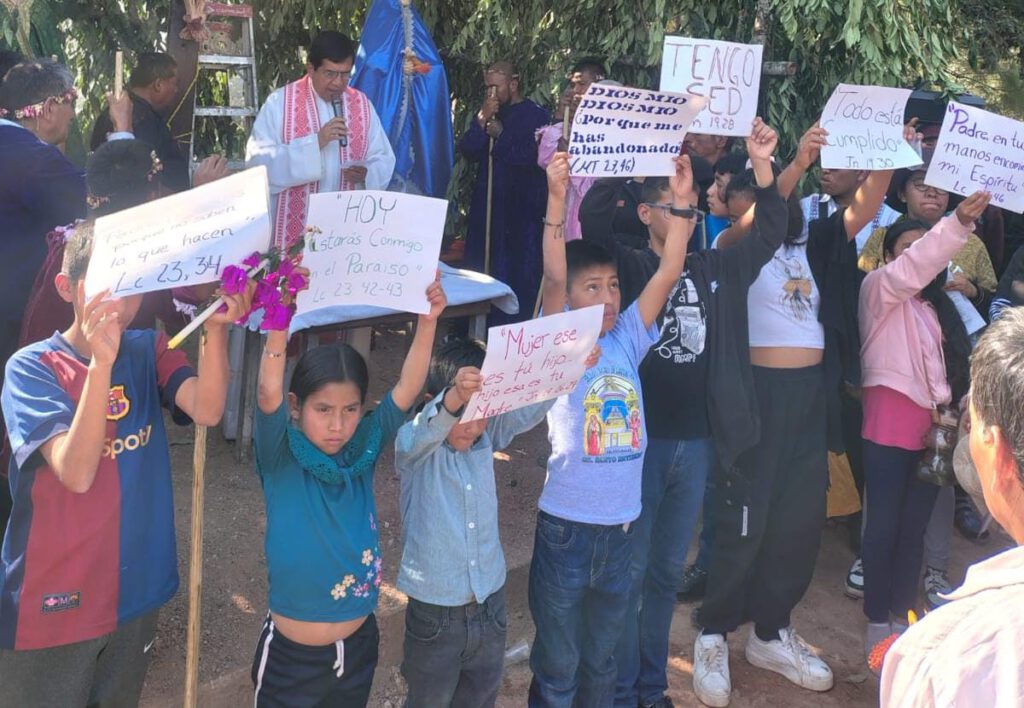
CLM Mission Team in the Parish
Tadeo, Felisa, Mariana, Beatriz CLM from Mexico and Carol CLM from Costa Rica.
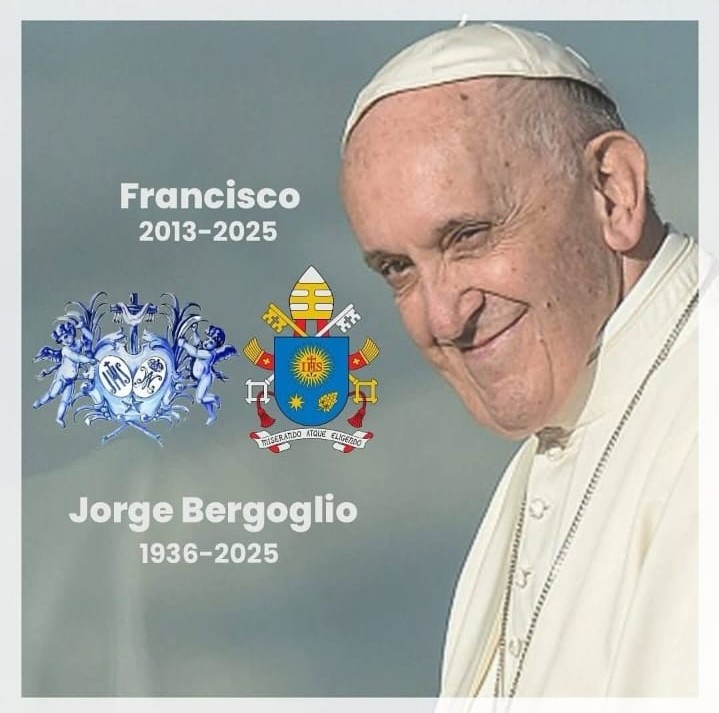
“Death is the passage through the door of hope. If we live united with Jesus, even the final moment of life is transformed into a light of resurrection”
Pope Francis
It seems that he just wanted to wait to celebrate Easter and say goodbye to everyone. Thank you for all that you have given and left.
In the place where he had been crucified there was a garden, and in the garden a new tomb… So they laid Jesus there.
(Jn 19, 42-42)

Dear confrères,
workers of hope and companions in mission, sowers of life where often there seems to be only death, on these holy days, as we celebrate Easter, we feel strongly in us the desire to reach out to you with a thought, a prayer, and a fraternal embrace.
You are where life often seems to give way to death, where human dignity is daily humiliated, crushed, offended, and sometimes denied altogether. And yet, right there, you are called to be a living presence of the Risen One in the most diverse ways: in choosing to stand beside the least of people, in lifting up those who have fallen, in restoring dignity to those who have been trampled…
Often the world may seem like a barren desert to you, but that is when you must believe that, sustained by the Spirit, you can help transform it into a lush ‘garden’ of life. Yes, because the Resurrection is not just an event of the past to be remembered with devotion. It is a fire that still burns, it is a force that continues to open up gravesites, to roll away tombstones that are too heavy, to sprout life even in the driest soils.
You know this well, although sometimes it is hard for you to believe it. At times you feel alone, overwhelmed by fatigue, discouraged by the harshness of reality and the poor results of your efforts. Yet, you continue to bear daily witness to Christ’s victory over death with simple and silent gestures: a child fed, a wound healed, a hand held out, a word spoken in the dark, a division healed, a hatred erased… Each of your acts of love is a denial of the logic of death.
It is Easter, it is new life! Although often surrounded by fetid and poisonous atmospheres, you can still believe – and see – that even the most terrible and darkest ‘tomb’ is always located – in a mysterious but real way – in an ‘Eden’. Not everyone believes and sees this. You do!
In the midst of a world that at times seems to have gone mad – marked by wars, deaths, misery, violence, indifference, overpowering and exploitation, ecological disasters, terrible humanitarian and environmental crises caused mostly by humanity – you continue to believe in ‘gardens in the desert’, to plant and expand them, in the spirit of a true ‘integral ecology’, and to sow beauty even where it seems impossible, to bet on goodness, on fraternity, on full life, and on the Gospel.
We all know that it is not easy. Sometimes the weight of grief around you seems greater than your strength. But do not forget: the tomb is empty. The Lord has risen. And with him, your every gesture has meaning. Every choice you make is light. Every step you take is Gospel incarnate. Every child who smiles again, every sick person cured, every injustice fought, every gesture of love made is a sign that the stone of the tomb can be rolled away, and that life can once again blossom.
You are not alone. Christ is walking with you.
And we, your confrères, are beside you with prayer, friendship, admiration, and gratitude. The world needs you who do not give in to darkness, but persist in lighting lamps, even when they seem useless.
Easter is just that: knowing that, despite everything, Life has the last word; that, where the world puts a grave, God builds a cradle; and that there is salvation even where there seems to be only despair and death.
We carry you in our hearts. We entrust you to the Risen One. And we pray that you will experience a true Easter: one of light, of hope, of consolation, and of renewed impetus. It is Easter! Love has won. And it will continue to win. With you, in you, thanks to you.
With affection and solidarity, we wish you a Happy Easter of hope and new life.
The MCCJ General Council